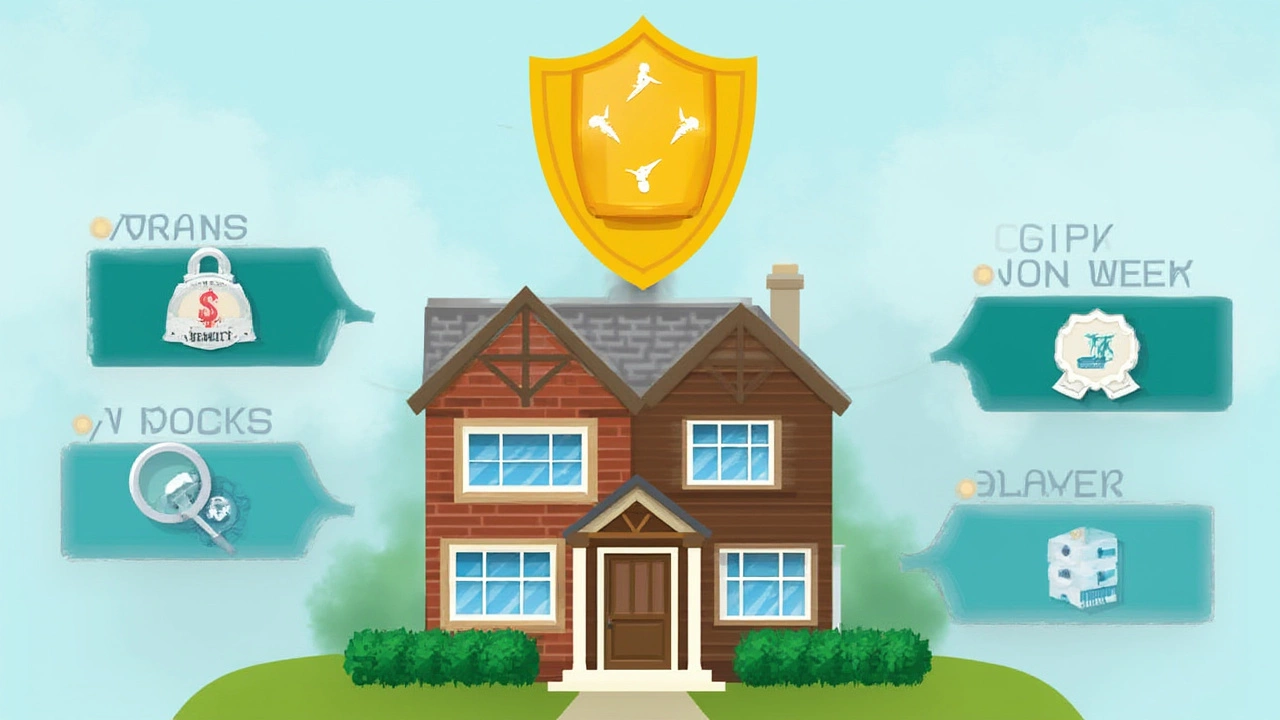Every so often, a mate will ask if equity release is truly "guaranteed." Maybe they've seen those shiny adverts with happy silver-haired couples in luxury kitchens, or maybe their own parents are considering it. There’s plenty riding on the word "guaranteed"—especially when your home is on the line. You’d want to know if any promises are bulletproof or just clever marketing, right?
You see, back when I took a serious look at equity release for my own family—not just for my folks, but as I’m thinking forward for Rory and Lila—I realized there are so many moving parts. The fine print gets pretty dense. So, let’s take an honest look at what “guaranteed” actually means in the world of equity release, who’s making those promises, and where the safety nets really sit.
What Does 'Guaranteed' Mean With Equity Release?
The most common type of equity release in the UK is a lifetime mortgage. It lets you unlock some of your home’s value tax-free, while you keep living there. But here’s the thing: nothing in life is truly guaranteed—except, perhaps, death and taxes. Even with these so-called guarantees in equity release, you need to check what’s really protected and what’s just a comfort word. Providers often highlight a “no negative equity guarantee,” but let’s learn what that really covers (and what it doesn’t).
The "no negative equity guarantee" means that you or your family will never owe more than your home is worth when it’s sold. Sounds pretty good on paper, right? If your home value crashes, your debt can’t spiral out and nab your kids’ inheritance or other money. The Equity Release Council—the industry’s watchdog—says all their approved products must offer this. If you spot a plan without it, run for the hills.
But look closer: does equity release guarantee a set interest rate? Only if you choose a fixed-rate product. Some plans are variable; their rates can move with the markets, and you could end up paying a lot more than you first thought. What about a guaranteed inheritance for your kids? Not usually. Unless you add an inheritance protection feature, what’s left for Rory and Lila could shrink fast as interest stacks up.
And will they guarantee you won’t lose your home? Only as long as you stick to the deal—mainly, living there as your main residence. Move into full-time care or pass away, and your home will usually be sold.
The big lesson? “Guaranteed” in equity release is a jigsaw, not a fortress. Some pieces (like the negative equity guarantee) are set in stone if you use a reputable lender. Other pieces—interest rates, inheritance—need careful thought or extra features with their own rules and costs. Don’t trust the word “guaranteed” without reading the fine print that props it up.
| Guarantee Type | Equity Release Applies? | How It Works | Common Exceptions |
|---|---|---|---|
| No Negative Equity | Yes (Council Members) | Debt never exceeds property value on sale | Only applies if provider is reputable and regulated |
| Interest Rate Fixed | Sometimes | Some plans fixed, others variable | Variable rates can rise |
| Inheritance Protection | By Choice | Ring-fence portion for heirs | Reduces amount you can borrow |
| Right to Live in Home | Yes (with conditions) | Stay until death or care | Changes if you move out or break terms |
You’ve got to watch for those details buried in the contract, like early repayment charges (which can sting hard if you end the plan early) or fees that might pop up from nowhere. These can chip away at the home’s value faster than you think.

How Safe Are Lifetime Mortgages and Home Reversion Plans?
Safety is a hot topic, especially if you’ve built up decades of equity. Lifetime mortgages, the most popular option, have layers of regulation thanks to the Financial Conduct Authority (FCA) and the Equity Release Council. If you stick with their approved lenders, you get that “no negative equity” promise and the right to stay in your home for life. For many, that’s enough to sleep well at night.
With a home reversion plan, you actually sell all or part of your home to a provider for a lump sum (or regular payments), but you get to keep living there rent-free. Not many people opt for this—around 95% go for lifetime mortgages these days. Home reversion can seem safe, since you know exactly what share of your home you keep. But remember: you’re selling to a company, usually for way less than your home’s open-market value.
Let’s get specific: plans regulated by the Equity Release Council require clear information on all costs, and you must take independent legal advice before you sign. And unlike the wild-west years before 2007, today’s plans can’t kick you out as long as you follow the rules. Only a major breach—like moving out for good or intentionally wrecking your home—could end your right to stay.
Still, things can feel shaky when you look at how fast interest builds up on rolled-up lifetime mortgages. Here’s a real-world example: take £60,000 out at 6% annual fixed interest. If you make no payments, after 20 years you’d owe over £192,000—more than triple the original amount. And if property prices stall, there might not be much left for your kids. Providers base their risk (and those guarantees) on forecasts, but no one saw the 2008 crash coming, right?
The Equity Release Council also insists that plans don’t have hidden compulsory insurance add-ons or nasty small print. But you can still face additional fees if you want to move house or pay off your plan early. These “early repayment charges” are capped, but can still be steep, sometimes up to 25% in the first few years. You also have to be at least 55 to take out an equity release plan—there’s no getting around those age requirements.
A big safety tip: always check if the provider is a member of the Equity Release Council. If not, their “guarantees” aren’t worth much. Use the Council’s website or ask directly. Providers love the word "guaranteed," but you want one who’ll put the right promises in writing, with real regulatory backing.

Tips for Getting the Most Reliable Equity Release Plan
Here’s where it really gets personal—what can you do to take the uncertainty out of equity release? First, always get advice from a specialist advisor who knows the market inside out. The law says you must take independent legal advice before signing up, but it’s smart to get a financial advisor, too—someone not tied to a single provider. Good advisors can spot awkward clauses in the contract and tell you where those guarantees have loopholes.
- is equity release guaranteed – make this your top Google question, then dig into the details for every provider and plan. Ask for written proof of all their promises, especially about your right to stay in the home and reduce risk to your kids.
- Read the Key Facts Illustration (KFI) document—sounds dull, but it bulks out the guarantees in plain English. Compare at least three providers side-by-side.
- If inheritance for your kids is critical, ask about ring-fencing options (inheritance protection guarantees). Yes, you’ll get less cash, but it keeps some value for your family when you’re gone.
- Look for fixed, not variable, interest rates wherever possible. Variable-rate plans are hard to predict, so the guarantee of what you’ll ultimately owe is weaker.
- Ask about portability—can you take the plan to a new home if you want to move? All Equity Release Council members must let you, as long as the new place fits the lender’s criteria.
- Keep your records. If something goes wrong and you need to make a complaint, it’s easier to prove what you were promised.
Check the latest annual figures: Homeowners unlocked nearly £6.2 billion in equity from their homes in the UK in 2024, according to the Equity Release Council. About 92% of those used lifetime mortgages. That’s big money, with big consequences if any “guarantee” fails.
The bottom line? With equity release, there’s safety if you stick to the big, regulated names and the right product, but “guaranteed” isn’t one-size-fits-all. The word hides a world of small print and moving pieces. It’s your job—sadly, and sometimes, surprisingly—to question every promise until you know exactly what’s covered. After all, your home isn’t just four walls and a roof. It’s your life’s work and your kids’ potential future. No fake guarantee is worth risking that.

